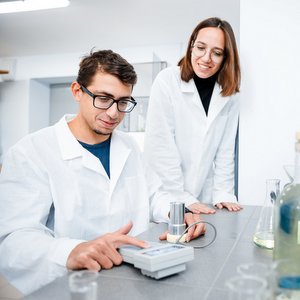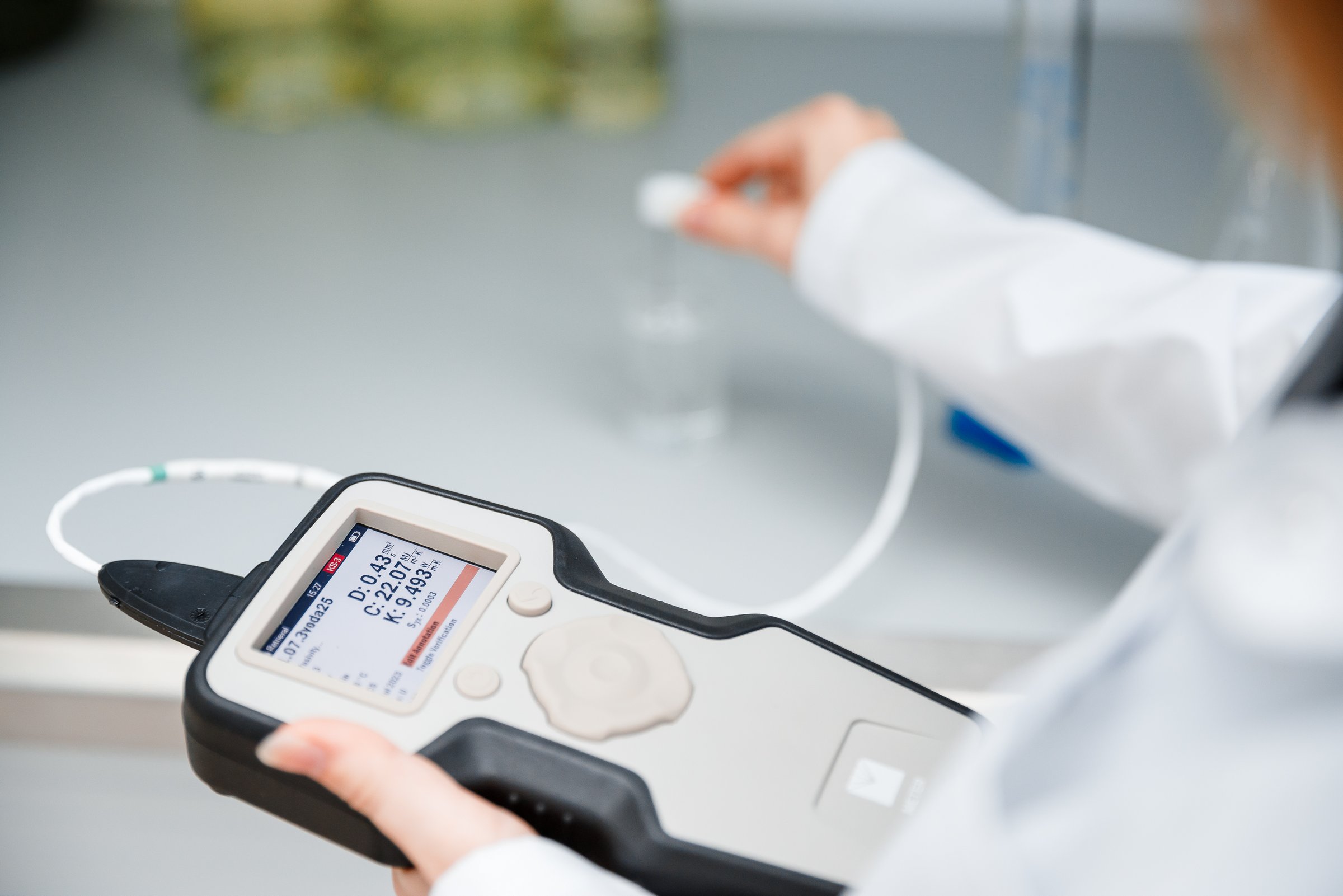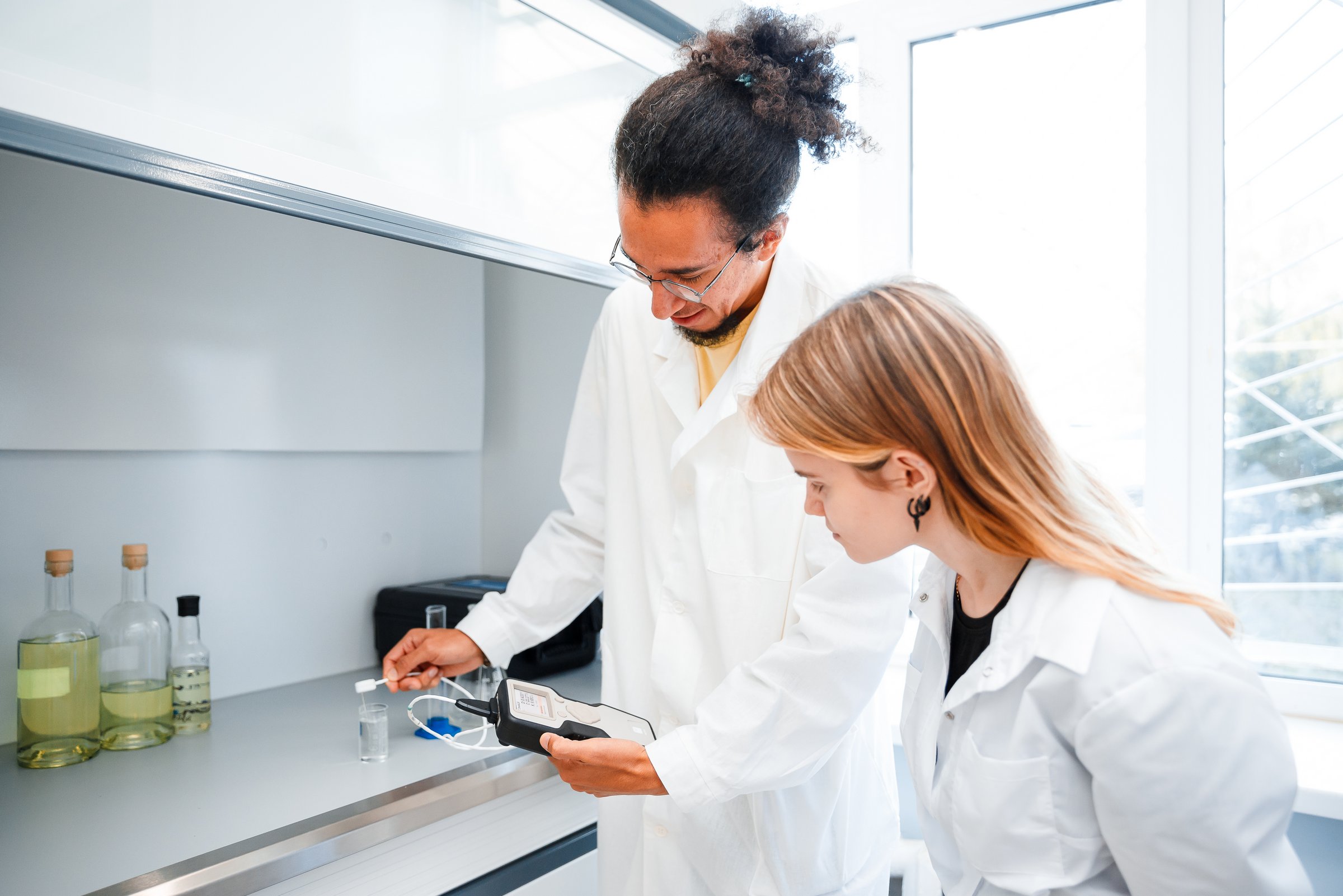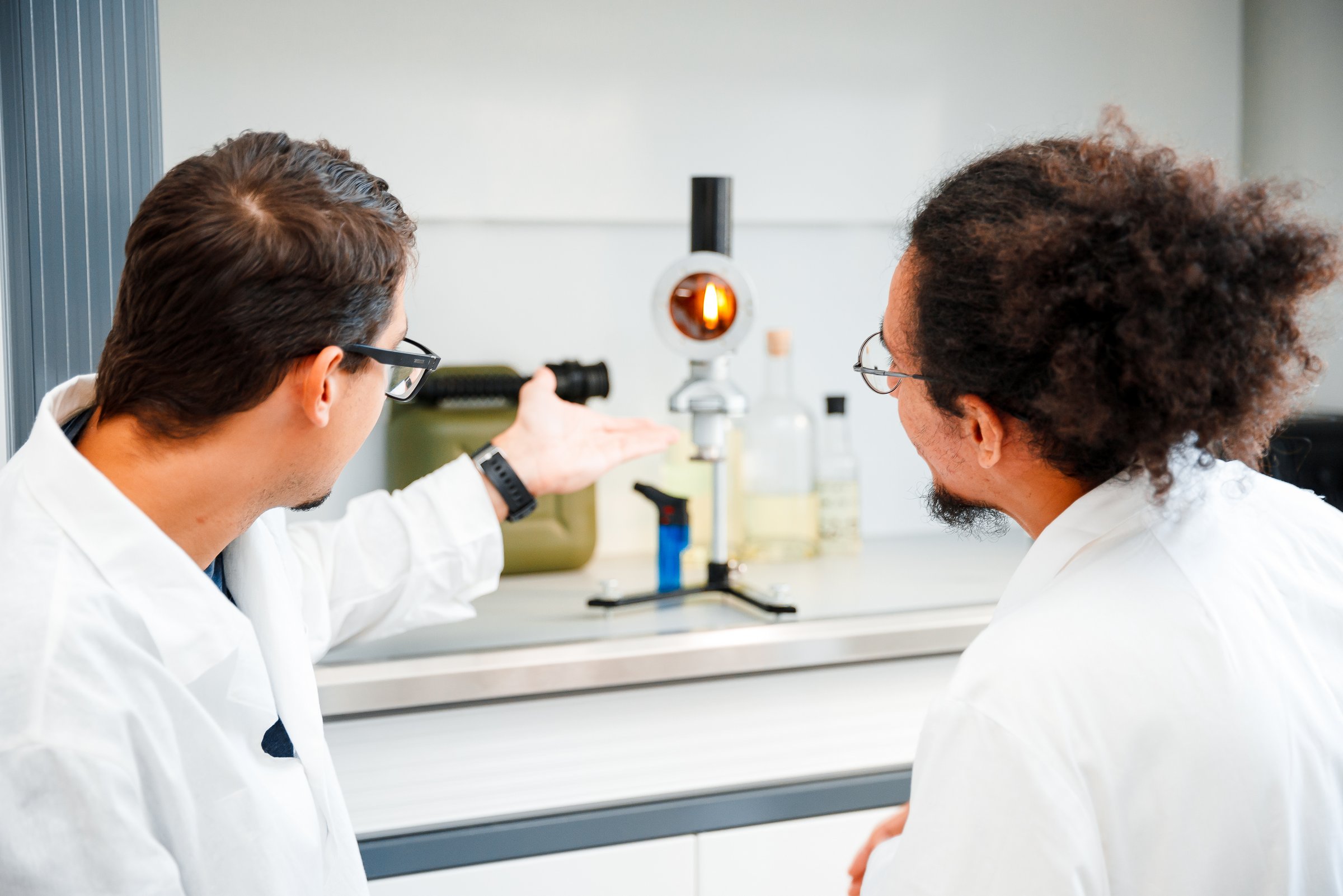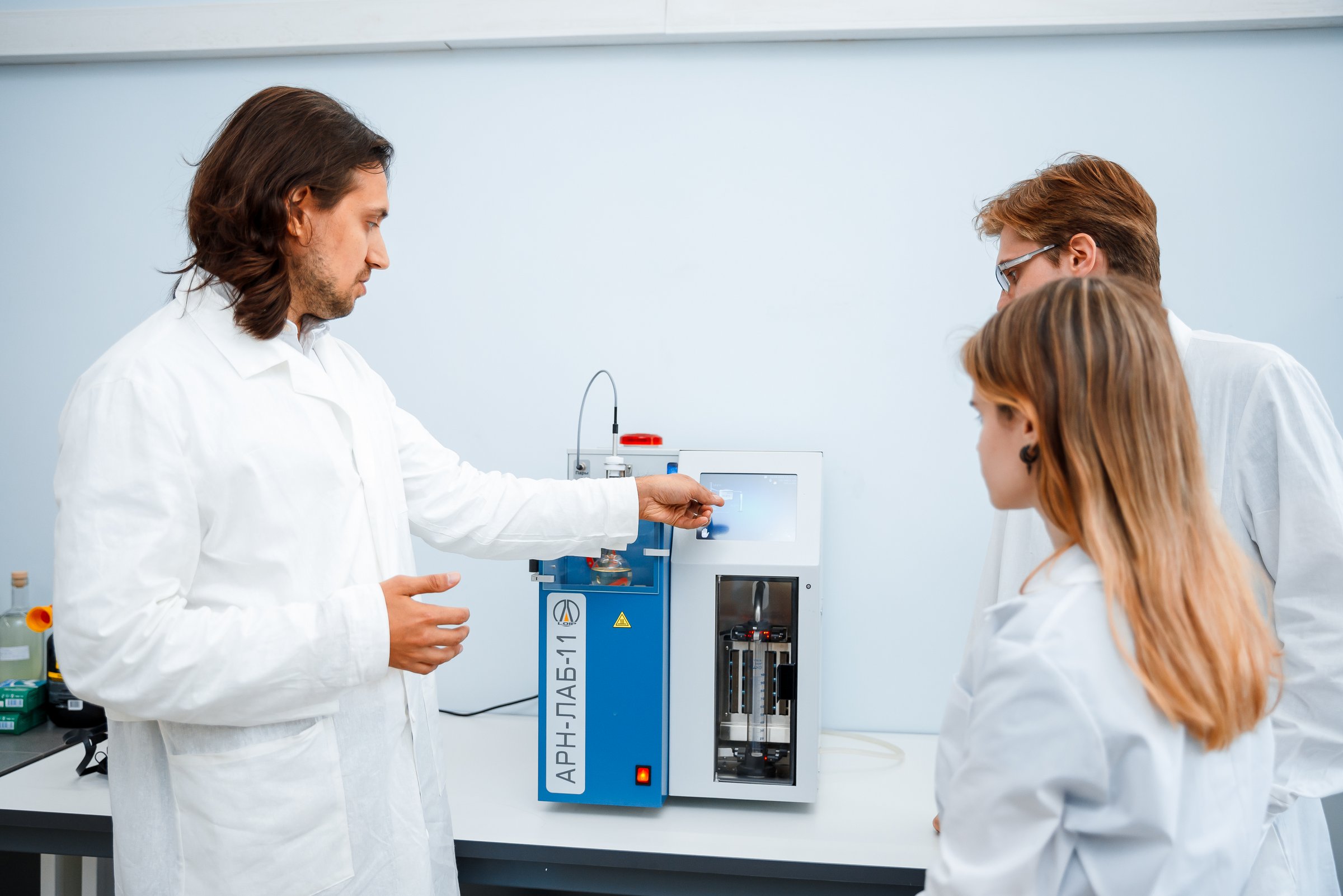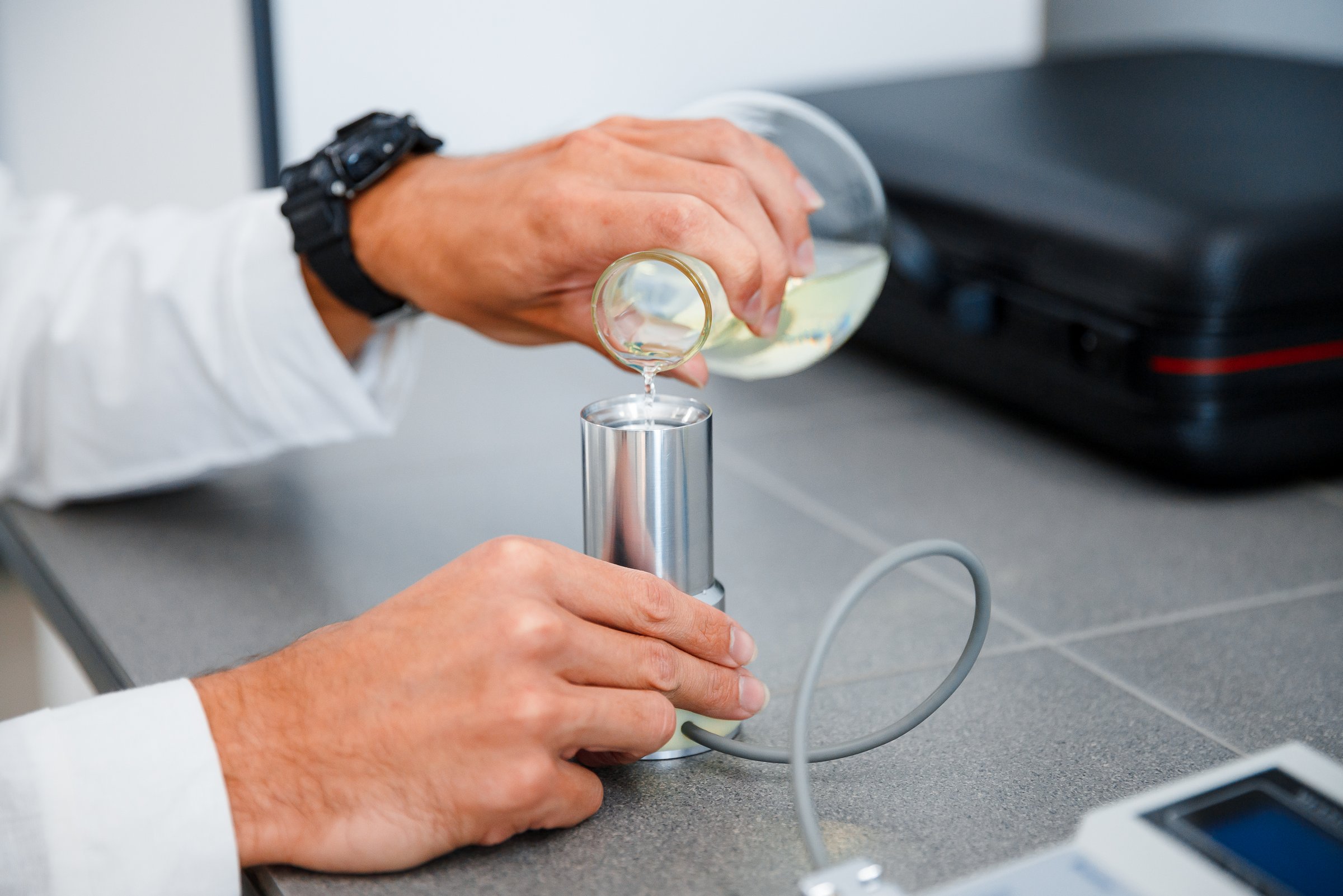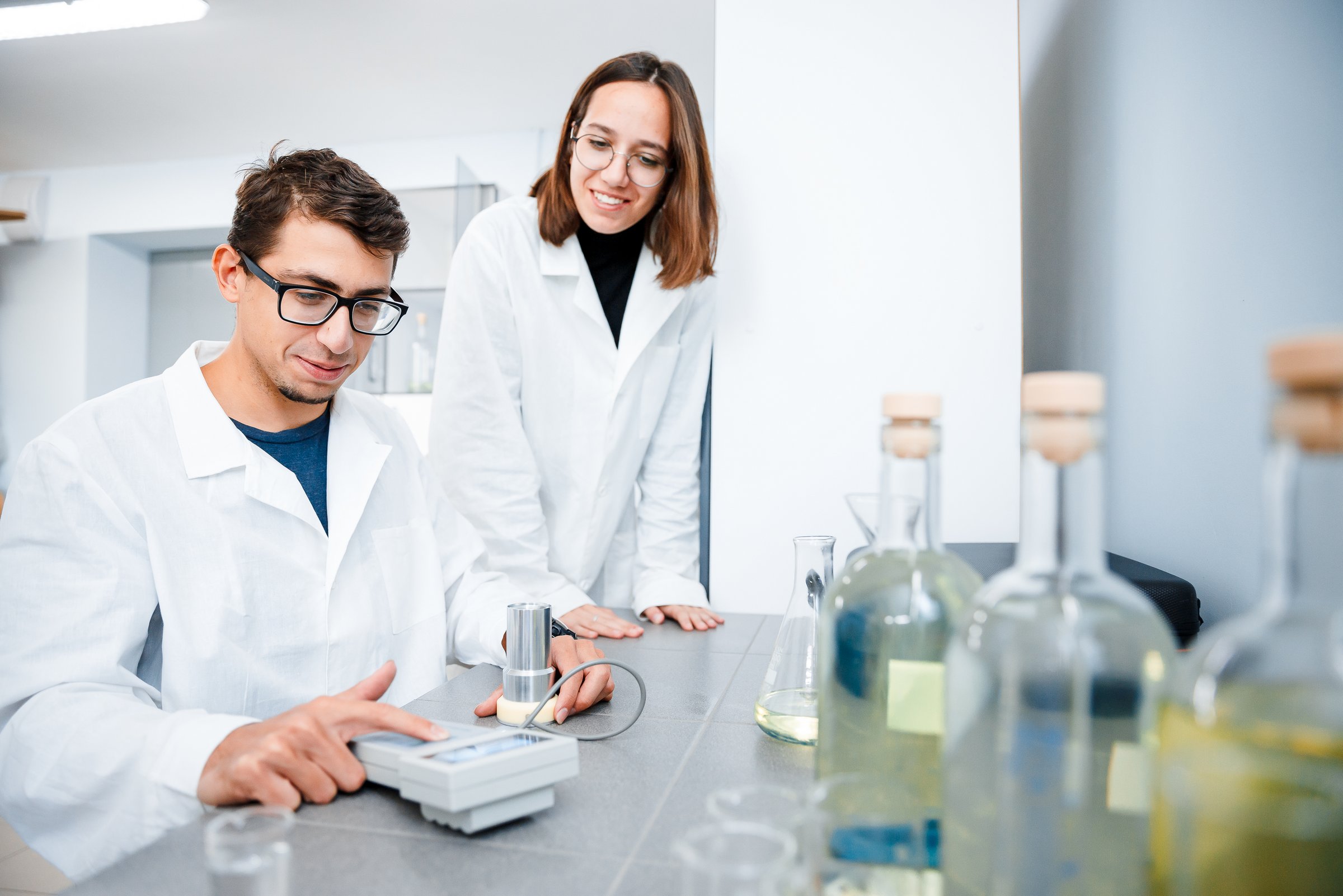“One of tasks of this project implemented in the Youth R&D Laboratory “Power Facilities” is comprehensively assessing exposure of biofuels on the aircraft engine parameters and, accordingly, on their operation as part of an aircraft. That is, to put it simply, we take any aircraft functioning in the domestic market, and use our program to see how its parameters will change under exposure of a certain biofuel, for example, speed and duration of the flight, the take-off and landing cycle, harmful emissions into the atmosphere. If you enter necessary up-to-date data, the program will be able to show even economic feasibility of using biofuel for this aircraft, how much cheaper or more expensive such a flight will cost for the airline. Of course, biofuels are still quite expensive now, but their production increasingly gets cheaper every year, and the global trend is that environmentally friendly aviation fuel will gradually replace traditional kerosene,” told us Ivan Zubrilin, Director of the Engineering Centre of Samara University, Head of the Youth R&D Laboratory “Power Facilities.”
According to the scientist, in 2027, the International Civil Aviation Organization (ICAO), within the framework of the CORSIA program, will introduce a number of mandatory measures to stimulate the use of carbon-neutral fuels. Airlines will have to pay special compensation fees for flights without using environmentally friendly fuels (such fuels, including biofuels, have a formal common name — SAF, Sustainable Aviation Fuel). According to open sources, for Russian airlines, these compensation fees in 2027 may amount to about 1.5–2 billion euros. In future, these fees will only increase, if you do not switch to SAF.
“Commercial flights using various mixtures of biofuels and conventional fuels have been carried out since 2011, and in 2023, Boeing aircraft was undergone to ground tests on the use of 100% SAF. This means that in a few years, aircrafts fully powered by environmentally friendly fuel will take off. According to statistics, over the past few years, the global volume of SAF production has increased 20 times, and it is predicted that by 2050, about half of all aviation fuel in the world will be SAF leaving a minimal carbon footprint,” said Ivan Zubrilin.
Developing the software package is carried out by scientists on the basis of the automated system “ASTRA” created earlier at the University, and intended for the conceptual design of gas-turbine engines. Due to the new software package, Russian designers will be able to optimize parameters of aircraft engines they design, given the most suitable composition of promising aviation fuels. The software developers intend to include both currently available and being developed biofuels in the program database.
“At the first stage of the software development, only fuels made of bio-raw materials are considered as promising components. We schedule to complete the first stage of the software development in 2024. In future, it is planned to add to the software package database synthetic fuels, fuels made of recycled raw materials, and aviation condensed fuel (ACF),” said Ivan Zubrilin.
The project of the Youth R&D Laboratory “Power Facilities” will be based on the results of experimental studies conducted at Samara University under the grant from the Russian Science Foundation. In course of these studies, scientists work out the methodology for calculating properties of mixtures of hydrocarbon fuels with various bio-components. The scientists closely collaborate with other research organizations, such as Tomsk Polytechnic University, the Laboratory of Novokuibyshev Oil Refinery, the Central Institute of Aviation Engine Engineering, Perm Polytechnic University.
*Biofuels are fuels made of plant or animal raw materials, from waste products of organisms or organic industrial waste.
Photo: Olesya Orina
